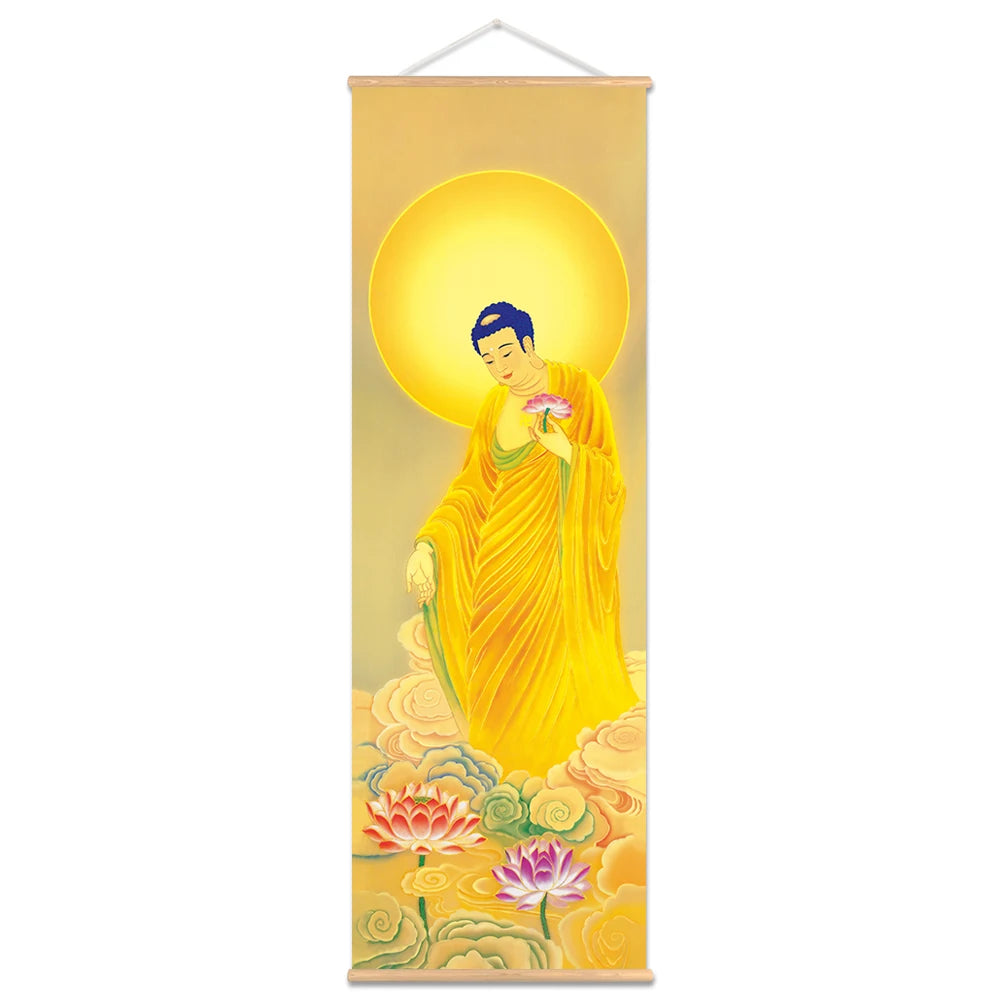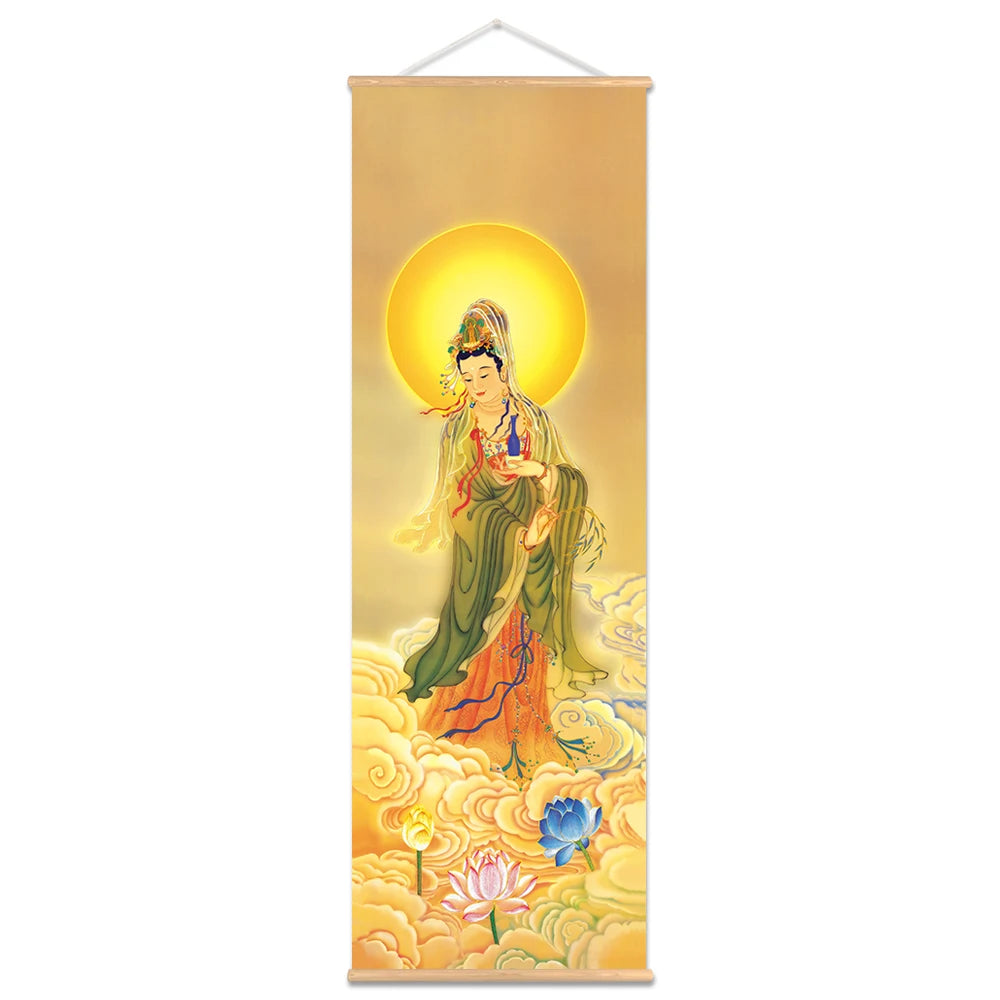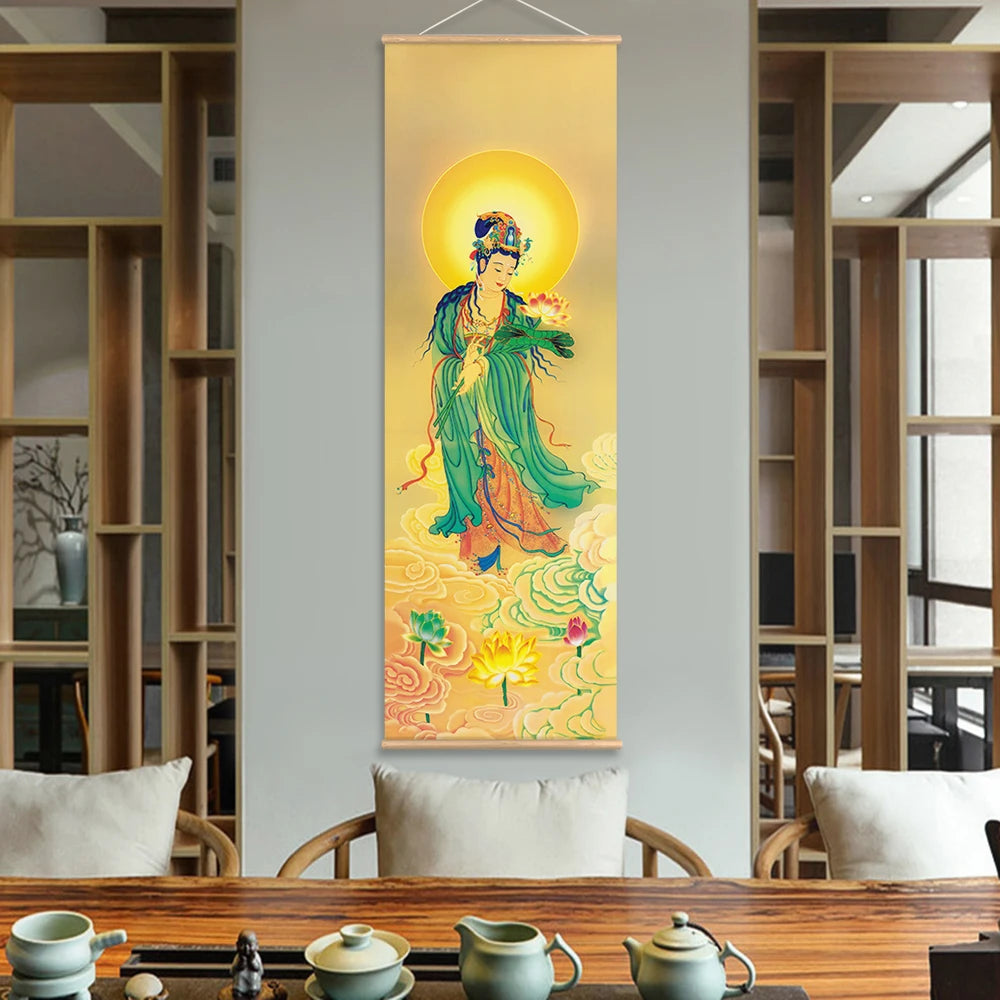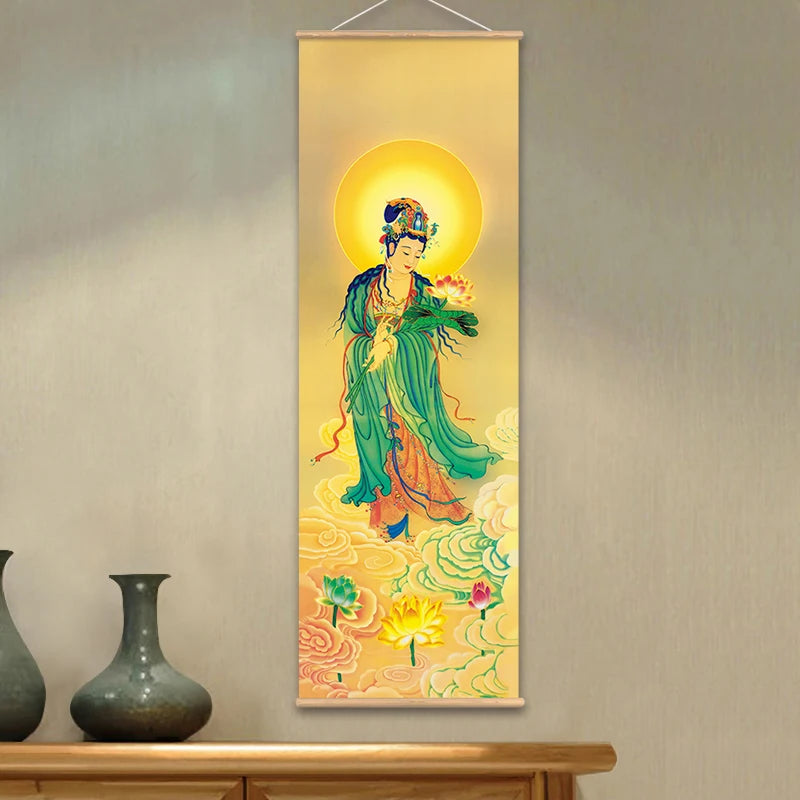Amigo Zen
Guanyin & Avalokitesvara Bodhisattva
-
Name and Cultural Transition:
- Guanyin is the Chinese interpretation of Avalokitesvara. The name Guanyin means “The One Who Perceives the Sounds (or Cries) of the World.” In full, the name is Guanshiyin, meaning “the one who hears the world’s cries.”
- In China, Avalokitesvara underwent a transformation into a more feminine form over time. While originally depicted as male in Indian and early Chinese Buddhism, Guanyin gradually became associated with feminine compassion, and by the Tang Dynasty, was widely represented as a female figure.
-
Role in Chinese Buddhism:
- Guanyin is one of the most beloved deities in Chinese Buddhism and is venerated for her endless compassion and mercy. She is invoked in times of need, especially for protection, healing, and guidance.
- She is often considered a motherly figure, extending kindness and love to all beings, and is especially associated with helping women, children, and those in distress.
-
Iconography:
- Guanyin is typically depicted in a flowing white robe, often holding a vase of pure water and a willow branch, which symbolize her ability to bring purification and healing.
- In many depictions, she stands or sits on a lotus flower, a symbol of purity and spiritual awakening. Sometimes she is shown holding a child or offering protection, reinforcing her maternal, nurturing qualities.
- In other forms, Guanyin is depicted with a thousand arms and eyes, similar to Avalokitesvara’s many-armed forms, symbolizing her capacity to assist all beings at once.
-
Associated Legends:
- One of the most popular legends of Guanyin tells of her vow to liberate all beings from suffering. According to one story, Guanyin was about to enter Nirvana but turned back to aid suffering humanity after hearing the cries of the world.
- In Chinese folklore, Guanyin is also connected to the Legend of Miao Shan, where she is portrayed as a princess who sacrifices herself for her family and the greater good, later transforming into the compassionate Bodhisattva.
Auspiciousness and Symbolism:
- Both Avalokitesvara and Guanyin represent the pinnacle of compassion and mercy. In Buddhist iconography, they symbolize:
- Universal compassion: Their role as listeners of the world’s cries ensures that no plea for help goes unheard.
- Salvation from suffering: They are invoked to provide solace to those in physical, emotional, or spiritual pain.
- Protection and guidance: Both figures are seen as protectors, especially for those on a spiritual path, and they offer guidance through life’s challenges.
Regular price
$19.99 USD
Regular price
$39.99 USD
Sale price
$19.99 USD
Unit price
per
Couldn't load pickup availability
Wall Art Avalokitesvara Bodhisattva & Guanyin Thangka
Wall Art Avalokitesvara Bodhisattva & Guanyin Thangka












